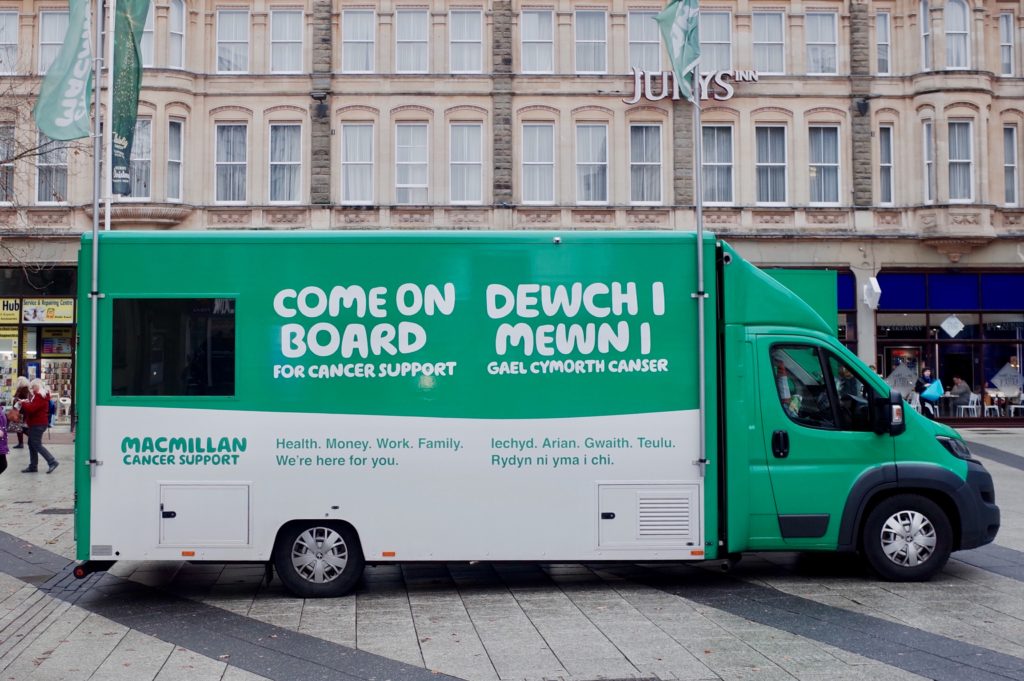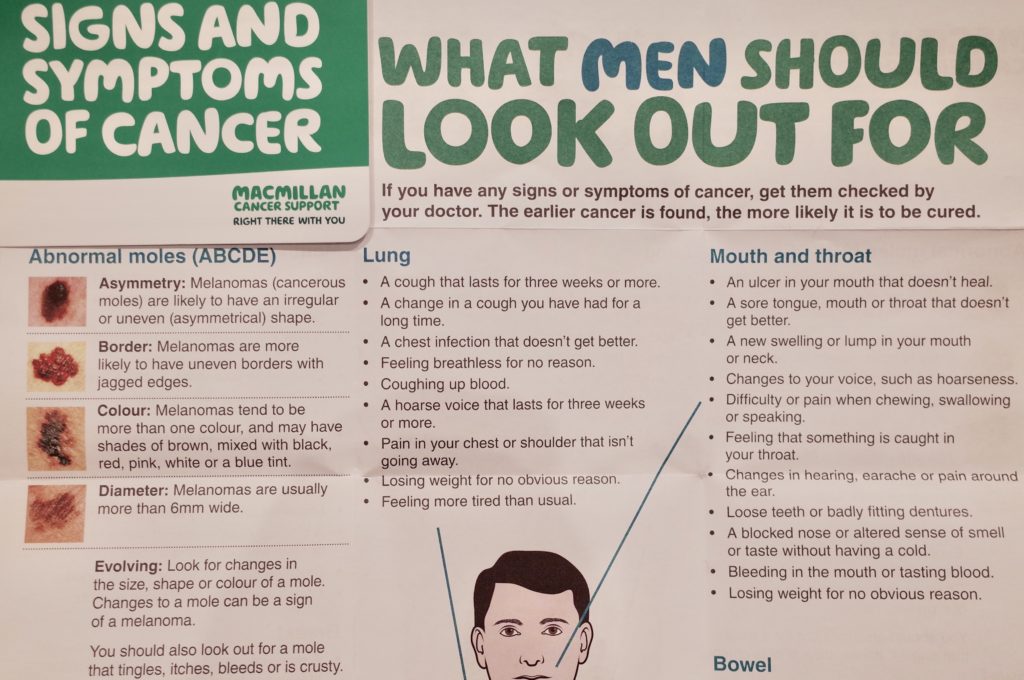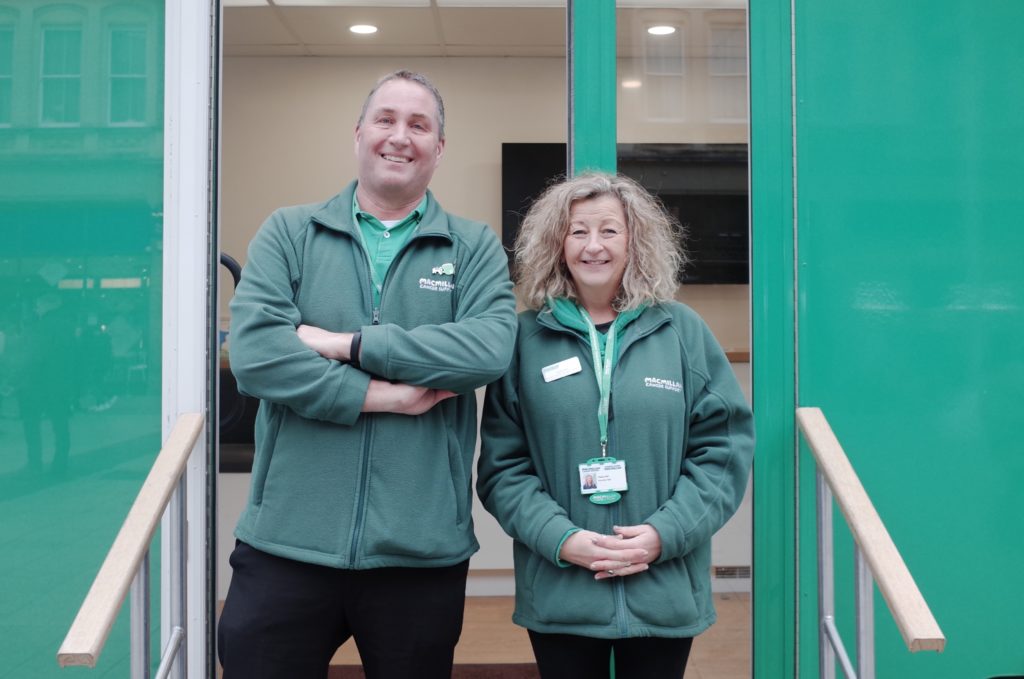“Whatever cancer throws your way, we’re right there with you.” Having UK’s leading source of cancer support, Macmillan does everything as its slogan says.

Volunteers from Macmillan Cancer Support visited Cardiff this Thursday and ready to help everyone who has worries and questions grasp a better understanding of cancer.
The charity’s medical bus stopped at the central Cardiff, with its members trying to provide guidance for people who are uncertain about the signs and symptoms of cancer.

“Knowing what changes to look for and when to see your doctor could make a real difference,” said Danielle Mellows, a Macmillan information and support specialist. “Don’t be scared if you have symptoms. Get them checked.”
The organization has been striving to offer physical, financial and emotional support for people who suffer from cancer and is still on the way to provide more including tools and inspirations from people who participate in them.

Lynda Thomas, the chief executive of the charity said: “An increasing number of people are hearing the heartbreaking news that they have cancer, at a time when the NHS desperately needs additional doctors and nurses.”
And that is the problem Macmillan trying to deal with at the moment. Founded in 1911, the organization has set up its information and support centers in every county of the UK.
Macmillan also plays a crucial role in shaping the Government’s Cancer Strategy and making it stress more on improving patient experience across the diagnostic and therapeutic process.
The concept of the Society firstly came from the founder of the charity, Douglas Macmillan, who once watched his father struggling with cancer, then decided to seek welfare for cancer patients after his father’s death.
Now the Society gradually leads all these things to the right way with the man’s will and recently they have joined the General Election calling for more access to the right care for people in need.

Last week, the volunteers from the charity came Cardiff for Selection Debate in order to emphasis the cancer problem and make their voice to be heard more.
Lynda said: “We need decision-makers across the UK to prioritize funding and put in place the right plans, to ensure we have a cancer workforce fit for purpose both now and in the future.”
